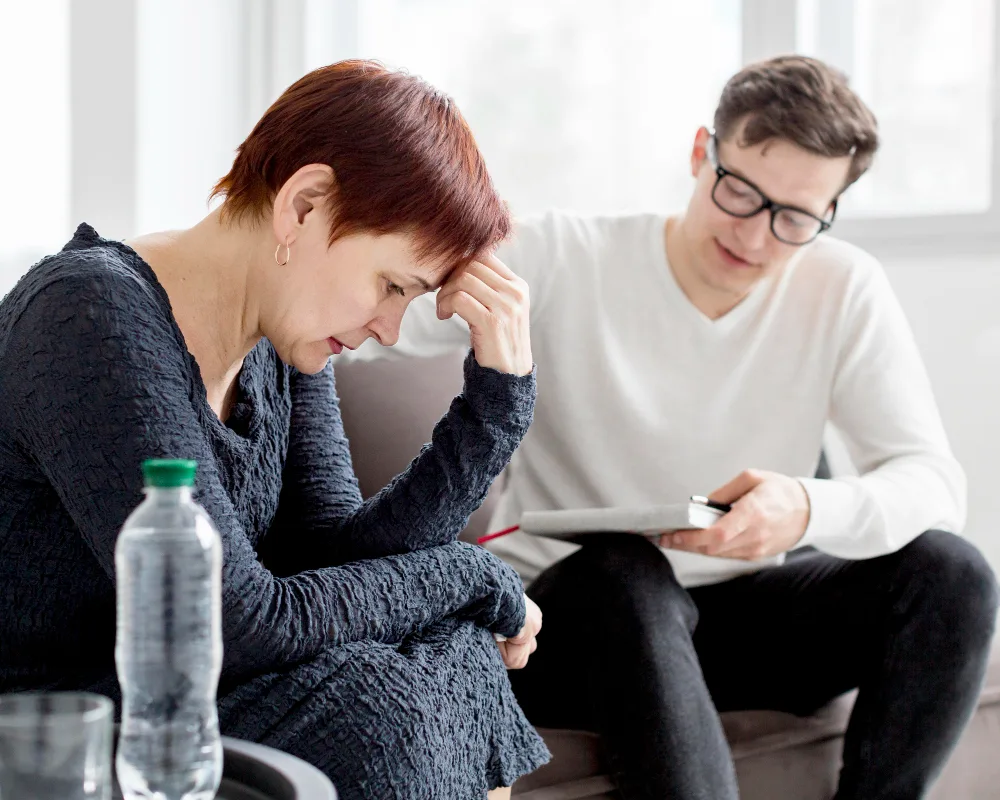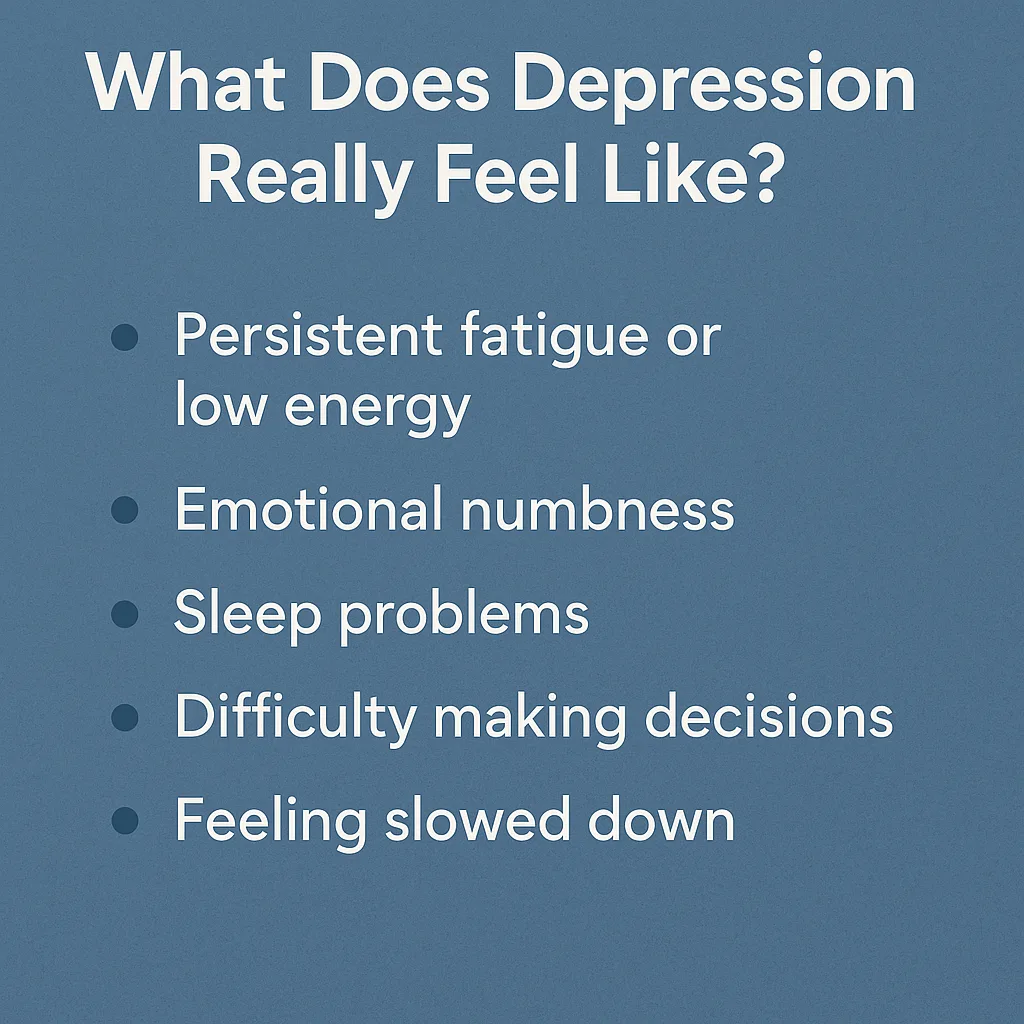Depression doesn’t always look like what people expect. It’s not always tears or dramatic breakdowns. In fact, for many people—especially those in Boston quietly rethinking their relationship with alcohol or other substances—depression shows up as something more invisible: a numbness you can’t shake, a lack of motivation that feels like failure, or a weariness that sleep doesn’t fix.
As an addiction counselor, I’ve had countless conversations that start with, “I don’t think I’m depressed—I just feel off.” If that sounds familiar, you’re not alone. Understanding what depression really feels like is the first step toward reclaiming your energy, clarity, and direction.
Let’s break it down.
Depression Is More Than Just Sadness
One of the most common misconceptions about depression is that it means feeling sad all the time. But for many, it’s more like a fog than a storm.
You might feel:
- Irritable over little things
- Guilty for not being “grateful enough”
- Emotionally flat—unable to cry, but unable to laugh, either
These feelings can quietly erode your confidence and decision-making. Especially if you’re questioning your use of substances, you might wonder if you’re just “hungover,” “burned out,” or “lazy.” The truth? Depression can distort how you see yourself long before it fully sets in.
Physical Symptoms Are Just as Real
Depression doesn’t only affect your emotions. It also shows up in the body—and those signals are just as important to notice.
You might be dealing with depression if:
- Your sleep is off—either oversleeping or waking up exhausted
- You’ve lost your appetite, or food feels like a chore
- You feel physically heavy or achy, even when you’re not sick
These physical changes are not “all in your head.” They’re valid medical symptoms of depression, and they deserve the same care and attention as any other health issue.
When Everyday Tasks Feel Impossible
Let’s talk about something called executive dysfunction. It’s a clinical way of describing how depression can make even small tasks feel impossible.
Folding laundry, answering texts, taking a shower—things that once felt routine can start to feel like climbing a mountain. This isn’t laziness. It’s a brain under stress, struggling to regulate motivation, focus, and follow-through.
If this is you, please know: You’re not broken. You’re exhausted in ways people don’t always see—and treatment can help you recover those capacities.
Boston Culture Can Hide Depression Well
In Boston, the pace is fast. The pressure to achieve, keep moving, and “push through” is real. From students in Cambridge to professionals in the Financial District, it’s easy to look like you have it all together while quietly unraveling inside.
That’s why high-functioning depression is often missed. You might be showing up at work, socializing occasionally, maybe even getting praise for how “together” you seem. But inside, there’s a quiet hum of disconnection—or the creeping question: “Is this really all there is?”
If you’ve ever wondered that, it might be time to explore what’s going on beneath the surface.
Treatment Opens Doors You Might Not Know Exist
If you’re sober-curious, or trying to untangle your mental health from your substance use, you may be unsure whether “treatment” is really for you. That’s okay. At Greater Boston Behavioral Health, we meet you where you are—no labels required.
Depression treatment isn’t a one-size-fits-all plan. In Boston, options like:
- Individual therapy (CBT, DBT, psychodynamic therapy)
- Medication management (when appropriate and collaborative)
- Integrated dual-diagnosis care (for those navigating both mental health and substance concerns)
…can be customized to support you. Whether you’re exploring therapy for the first time or seeking something more structured, you don’t have to figure it out alone.
Learn more about our depression treatment services in Boston
Frequently Asked Questions About Depression Treatment
How do I know if I really need help or if I’m just in a rut?
If your symptoms have lasted more than two weeks and are affecting your sleep, appetite, motivation, or relationships, it’s worth talking to a professional. You don’t need to be in crisis to benefit from support.
What if I don’t want medication?
That’s okay. Many people benefit from therapy alone. At Greater Boston Behavioral Health, we’ll talk with you about what you want, and we’ll never push medication unless it aligns with your goals.
Is depression linked to substance use?
Yes. Many people use alcohol or other substances to self-medicate depression symptoms—often without realizing it. When we treat depression, we help untangle that overlap in a way that’s supportive and nonjudgmental.
Do I have to commit to weekly therapy right away?
Not necessarily. Our team will work with you to build a treatment plan that fits your needs and schedule. Sometimes that means weekly sessions, sometimes something more flexible.
You Deserve to Feel Better
Depression doesn’t have to define you—or stay hidden. If you’re reading this and wondering, “Could this be me?” the answer might be yes. And that’s not something to fear. It’s something to explore, gently and respectfully, with someone who understands.
Ready to talk it through? Call (888)301-8072 to speak with our team at Greater Boston Behavioral Health. We’re here to help you figure out your next step—at your pace, on your terms.


